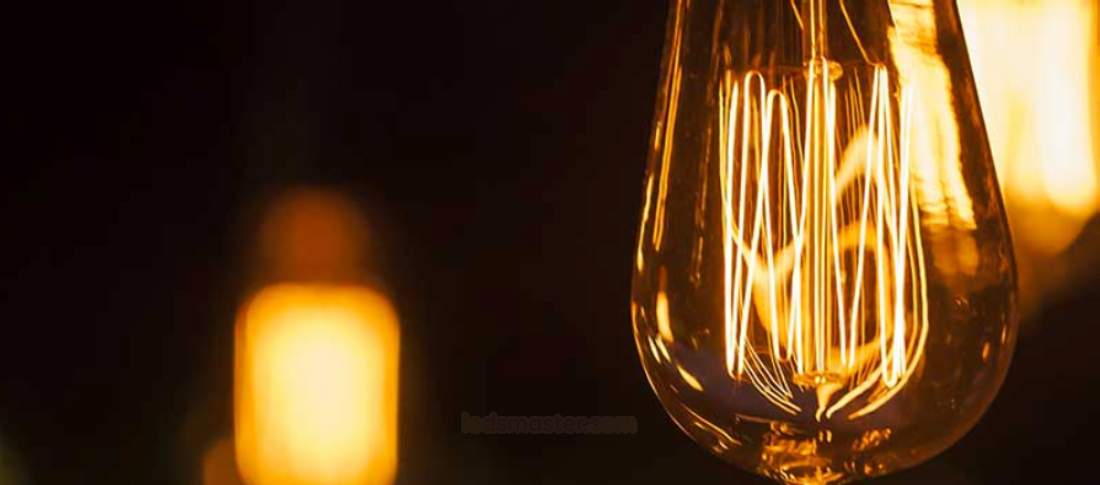Table of Contents
ToggleLighting Certification Services
TUV Rheinland of North America is a leading authority in the field of lighting certification, offering a comprehensive range of services designed to ensure that lighting products meet the highest standards of safety and performance. Renowned for its commitment to quality and reliability, TUV Rheinland’s certification process serves as a key indicator that a lighting product has undergone thorough testing and validation to comply with both industry regulations and standards.
Rigorous Testing Procedures
The certification process at TUV Rheinland is characterized by its rigorous and detailed testing procedures, which examine multiple facets of lighting products. This includes assessing electrical safety to prevent hazards such as electrical shock or fire, evaluating photometric performance to ensure adequate and uniform illumination, and analyzing environmental impact to gauge the sustainability and eco-friendliness of the product.
Adherence to International Standards
TUV Rheinland’s evaluations are conducted in accordance with both national and international standards, including those established by the International Electrotechnical Commission (IEC) and the American National Standards Institute (ANSI). By adhering to these stringent standards, TUV Rheinland ensures that lighting products not only meet safety requirements but also deliver exceptional performance and efficiency.
Assurance of Performance and Reliability
The thorough nature of the testing process provides assurance that certified products are reliable and capable of performing optimally under various conditions. This rigorous approach underscores TUV Rheinland’s role as a trusted entity in the certification of lighting products, contributing significantly to the advancement of quality and safety in the lighting industry.

Consulting and Advisory Services
In addition to certification, TUV Rheinland offers expert consulting and advisory services to help clients navigate the complexities of lighting design and implementation. These services are tailored to meet the specific needs of various industries, including residential, commercial, and industrial sectors.
TUV Rheinland’s consulting services cover a wide range of areas, from optimizing lighting designs to improving energy efficiency and reducing operational costs. The team of experts provides valuable insights into the latest lighting technologies and industry trends, helping clients make informed decisions about their lighting projects. Whether it’s advising on the best lighting solutions for a new construction project or recommending upgrades to existing systems, Tuv Rheinland’s consulting services are instrumental in achieving optimal lighting outcomes.
Training and Education
Importance of Education and Training
Education and training are pivotal components of TUV Rheinland’s offerings, playing a crucial role in enhancing the knowledge and skills of professionals within the lighting industry. Recognizing the ever-evolving nature of lighting technology and standards, TUV Rheinland is dedicated to providing a range of training programs tailored to meet the needs of various industry professionals, including lighting designers, engineers, and manufacturers. These programs are meticulously designed to address the diverse learning requirements and professional development goals of individuals working in the lighting sector.
Comprehensive Training Programs
These include fundamental aspects such as lighting standards, best practices, and the latest emerging technologies. Participants in these programs receive in-depth instruction on various aspects of lighting design and implementation, including regulatory requirements and industry trends. The training is structured to offer practical insights and hands-on experience, ensuring that professionals can effectively apply their newly acquired knowledge to real-world scenarios.
Benefits of Continued Education
By engaging in TUV Rheinland’s educational programs, industry professionals gain a deeper understanding of core lighting principles and the regulatory landscape that governs the field. The knowledge gained from these sessions enables professionals to stay abreast of the latest developments and innovations in lighting technology. This continued education not only enhances individual expertise but also supports the broader goal of advancing the lighting industry as a whole. Participants are empowered to implement best practices and cutting-edge solutions in their work, contributing to the overall progression and excellence of lighting technology.
Impact on Industry Advancement
As professionals apply their enhanced knowledge and skills, they contribute to more effective and efficient lighting solutions, ultimately fostering innovation and improvement within the industry. By prioritizing education and training, TUV Rheinland helps ensure that lighting professionals are well-equipped to meet current challenges and embrace future opportunities, thereby advancing the field of lighting technology and its applications.
Research and Development
Commitment to Research and Development
TUV Rheinland is deeply committed to advancing the lighting sector through dedicated research and development efforts. Recognizing the rapid pace of technological advancement and the increasing demands for sustainable solutions, TUV Rheinland invests significantly in research initiatives designed to explore and develop new materials, technologies, and methodologies. This commitment is central to the organization’s mission to drive innovation and enhance the performance and sustainability of lighting technologies.
Focus Areas of Research
TUV Rheinland’s research and development activities encompass a broad spectrum of focus areas aimed at pushing the boundaries of what is possible in lighting technology. Key areas of exploration include energy-efficient lighting solutions, which seek to reduce power consumption while maintaining high levels of performance and illumination. The organization also delves into advanced lighting controls, which offer enhanced functionality and adaptability to various lighting needs and environments. Additionally, TUV Rheinland is at the forefront of integrating smart technologies into lighting systems, enabling greater automation, connectivity, and efficiency.
Collaborative Approach to Innovation
A hallmark of TUV Rheinland’s R&D efforts is its collaborative approach. The organization actively partners with a diverse range of industry stakeholders, including lighting manufacturers, researchers, and academic institutions. These collaborations facilitate the exchange of knowledge and expertise, allowing for the development of innovative solutions that address both current and emerging challenges in the lighting industry. By working together with these partners, TUV Rheinland ensures that its research is both cutting-edge and relevant, contributing to advancements that benefit the industry as a whole.
Addressing Lighting Challenges
TUV Rheinland’s R&D initiatives are driven by the need to address a variety of lighting challenges. These challenges include improving energy efficiency, enhancing the functionality of lighting systems, and integrating new technologies to meet the evolving needs of consumers and industries. Through its research, TUV Rheinland aims to develop solutions that not only address these challenges but also set new standards for performance and sustainability in the lighting sector. The organization’s efforts contribute to the ongoing evolution of lighting technologies, ensuring that they remain at the forefront of innovation and effectiveness.
Impact on the Lighting Industry
The research and development conducted by TUV Rheinland have a profound impact on the lighting industry. By investing in and advancing new technologies and methodologies, the organization plays a key role in shaping the future of lighting. The innovations resulting from TUV Rheinland’s R&D efforts help drive industry progress, offering improved performance, greater efficiency, and enhanced sustainability. As the lighting industry continues to evolve, TUV Rheinland’s dedication to research and development ensures that it remains a leading force in advancing lighting technology and addressing the needs of a dynamic and growing market.
Testing and Compliance Services
Importance of Testing in Lighting Certification
The organization’s commitment to rigorous testing is vital for validating the performance, safety, and reliability of lighting products, thus helping to maintain high industry standards and protect consumers.
Comprehensive Testing Services
TUV Rheinland offers an extensive range of testing services designed to evaluate various critical aspects of lighting performance. These services include assessments of luminous efficacy, which measures the amount of light output per unit of power consumed, ensuring that lighting products are energy-efficient. Color rendering tests are conducted to determine how accurately a light source renders colors compared to natural light, which is essential for applications where color accuracy is important. Additionally, thermal management testing is performed to assess how well a lighting product manages heat, which is crucial for maintaining performance and longevity.
State-of-the-Art Facilities and Expertise
TUV Rheinland’s testing laboratories are equipped with cutting-edge technology and advanced equipment, enabling precise and reliable evaluations of lighting products. The laboratories are staffed by highly skilled professionals with extensive expertise in lighting technology and standards. These experts are responsible for conducting thorough and accurate assessments, utilizing the latest testing methodologies and tools to ensure that each product is thoroughly examined.
Benefits for Manufacturers
The comprehensive testing provided by TUV Rheinland offers significant benefits for manufacturers. By identifying potential issues early in the development process, manufacturers can address problems before products reach the market, thereby improving product quality and performance. Testing also helps manufacturers optimize their designs and ensure that their products comply with relevant regulatory requirements. This proactive approach not only enhances product reliability but also supports manufacturers in achieving certification and market acceptance.
Ensuring Compliance and Quality
The organization’s rigorous testing protocols help verify that products are safe for use, perform efficiently, and adhere to industry regulations. By maintaining these high standards, TUV Rheinland contributes to the overall reliability and effectiveness of lighting solutions, fostering confidence among consumers and stakeholders in the quality of certified products.
Impact on the Lighting Industry
The impact of TUV Rheinland’s testing services extends beyond individual manufacturers and products. By upholding rigorous standards and ensuring compliance, TUV Rheinland helps drive industry-wide improvements in lighting technology and safety. The organization’s commitment to thorough and accurate testing supports the development of high-quality lighting products that meet the evolving needs of the market. As a result, TUV Rheinland’s testing services play a key role in advancing the lighting industry and promoting the adoption of best practices and innovations.
Environmental Impact Assessment

The Growing Importance of Sustainability
As sustainability gains prominence within the lighting industry, TUV Rheinland is at the forefront of addressing environmental concerns through its comprehensive environmental impact assessment services. These assessments are designed to evaluate the ecological footprint of lighting products and systems, reflecting a commitment to minimizing environmental impact and promoting sustainability throughout the product lifecycle. In an industry increasingly focused on reducing its carbon footprint and enhancing resource efficiency, TUV Rheinland’s services provide critical insights that help manufacturers align their practices with environmental goals.
Comprehensive Environmental Impact Assessments
TUV Rheinland’s environmental impact assessments encompass a broad range of factors that contribute to the overall ecological footprint of lighting products. One key area of focus is energy consumption, where the organization evaluates how efficiently lighting products use energy and identifies opportunities to reduce power usage without compromising performance. Another important factor is material usage, where TUV Rheinland assesses the types and quantities of materials used in product manufacturing, aiming to promote the use of sustainable and recyclable materials. Additionally, the organization examines end-of-life disposal practices to ensure that products can be properly recycled or disposed of, minimizing their impact on landfills and the environment.
Identifying Opportunities for Improvement
Through its detailed assessments, TUV Rheinland helps manufacturers gain a clear understanding of the environmental implications associated with their products. By identifying areas where improvements can be made, such as enhancing energy efficiency or selecting more sustainable materials, TUV Rheinland empowers clients to make informed decisions that align with best practices in environmental stewardship. These insights not only support the development of more sustainable products but also encourage manufacturers to adopt practices that contribute to a greener industry.
Supporting Sustainable Product Design
The knowledge gained from TUV Rheinland’s environmental impact assessments is instrumental in guiding product design and manufacturing processes towards greater sustainability. By integrating environmental considerations into the design phase, manufacturers can create products that are more energy-efficient, use fewer harmful materials, and offer easier recyclability. TUV Rheinland’s assessments help clients incorporate these considerations into their product development strategies, resulting in lighting solutions that are both high-performing and environmentally responsible.
Promoting Industry-Wide Responsibility
TUV Rheinland’s commitment to environmental impact assessments extends beyond individual manufacturers, contributing to broader industry efforts to enhance sustainability. By setting high standards for environmental performance and encouraging the adoption of sustainable practices, TUV Rheinland helps drive industry-wide changes that benefit the environment. The organization’s assessments foster a culture of responsibility and innovation within the lighting industry, supporting the transition towards more sustainable and eco-friendly lighting solutions.
Quality Assurance and Performance Verification
Quality assurance and performance verification are essential aspects of TUV Rheinland’s services, ensuring that lighting products perform consistently and reliably over their lifespan. The organization provides performance verification services that assess the durability, longevity, and overall quality of lighting products.
The Role of Quality Assurance and Performance Verification
Quality assurance and performance verification are fundamental components of TUV Rheinland’s suite of services, integral to ensuring that lighting products deliver consistent and reliable performance throughout their operational lifespan. These services are crucial for maintaining high standards of quality and reliability in lighting products, which directly impact their effectiveness and user satisfaction. By focusing on rigorous assessment processes, TUV Rheinland helps manufacturers ensure their products meet stringent performance criteria and maintain high-quality standards over time.
Comprehensive Performance Verification Services
TUV Rheinland’s performance verification services involve thorough testing and evaluation of various aspects of lighting products. This includes assessing durability to determine how well products withstand environmental conditions, physical wear, and other stressors over their expected lifespan. Longevity testing is conducted to ensure that lighting products maintain their performance levels and light output throughout their operational life. Additionally, the overall quality of products is evaluated to confirm that they meet the specified performance criteria and adhere to industry standards.
Rigorous Testing Protocols
The process of performance verification at TUV Rheinland involves the use of advanced testing methodologies and state-of-the-art equipment. Products are subjected to a range of tests designed to simulate real-world conditions and evaluate their response to various stresses. These tests help identify potential issues that could affect product performance or longevity. By employing rigorous testing protocols, TUV Rheinland ensures that each product is thoroughly examined and verified for its ability to perform reliably over time.
Benefits for Manufacturers
For manufacturers, TUV Rheinland’s quality assurance and performance verification services offer several key benefits. By identifying potential issues early in the development process, manufacturers can address these problems before products reach the market, thus enhancing product quality and performance. The insights gained from performance verification help manufacturers make necessary improvements, optimize product designs, and ensure that their products meet the highest standards of quality. This proactive approach supports manufacturers in delivering high-quality, reliable products that meet consumer expectations and regulatory requirements.
Ensuring Consistent Quality
By verifying that products meet rigorous quality standards and maintain their performance over time, TUV Rheinland helps establish a high level of confidence in the reliability and effectiveness of lighting solutions. This consistency is crucial for both manufacturers and end-users, as it ensures that lighting products perform as expected and provide long-term value.
Contribution to Industry Reliability
TUV Rheinland’s commitment to quality assurance and performance verification extends beyond individual products, contributing to the overall reliability and effectiveness of lighting solutions within the industry. By upholding stringent quality standards and ensuring that products meet specified performance criteria, TUV Rheinland helps drive industry-wide improvements and foster trust in lighting technologies. The organization’s efforts play a key role in advancing the lighting industry, supporting the development of products that are both high-performing and dependable.
Conclusion
TUV Rheinland of North America plays a pivotal role in the lighting industry, offering a wide range of services that support safety, performance, and innovation. From certification and consulting to training and research, TUV Rheinland provides valuable resources and expertise that help advance lighting technologies and promote best practices. Through its comprehensive approach to lighting services, TUV Rheinland contributes to the development of high-quality, efficient, and sustainable lighting solutions that meet the needs of various industries. As the lighting industry continues to evolve, TUV Rheinland remains at the forefront, driving progress and ensuring that lighting solutions meet the highest standards of excellence.

